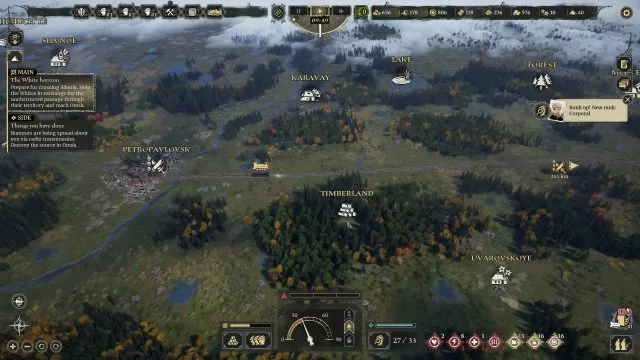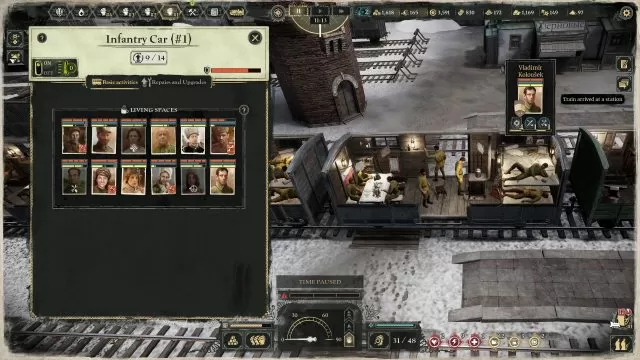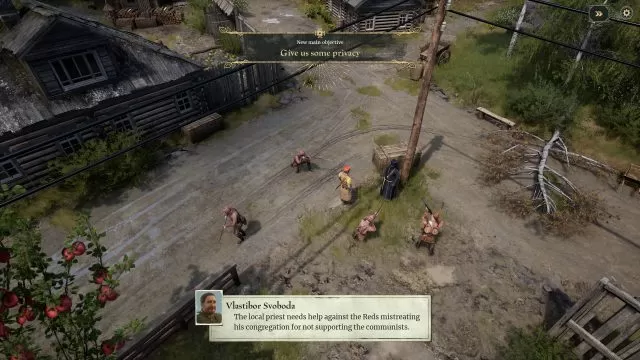Last Train Home Review – National Epic
One of the few good consequences of the Great War was the unstoppable wave of national liberation movements. Many European peoples took advantage of the global turmoil and declared independence from the Austro-Hungarian empire. Their nation-states emerged from the ruins of the Habsburg Frankestein, with freedom won by the strength of arms. Breaking the chains of oppression was no simple feat and often meant fighting far away from home, bleeding for a common cause.
Czechoslovak Legion, for example, fought on the side of the Entente (allies), facing the central powers on the Russian front. At its peak, it had more than 100.000 soldiers, a true force to be reckoned with. The Bolshevik Revolution and Russia’s abrupt exit from the war shocked the world but for the Czechoslovak expeditionary force, it spelled catastrophe. Overnight, they turned from allies to aliens in the eyes of their hosts, ending up stranded in the vast, Eurasian landmass. Getting home in one piece became an absolute priority. The short western route proved to be impossible due to German and Austrian armies and the clashes between Reds and Whites. So Legion turned east, attempting the epic trek to Vladivostok. Steamer ships, chartered by their provisional government, were to take them home from the Russian far east.
The Oktyabrsky trail

Last Train Home is a competent gamification of that titanic effort. It simulates the logistic, personnel, and combat challenges of one company riding the train on the Trans-Siberian railway. At its core, it resembles the ancient Oregon Trail, spiked with Frostpunk, Men of War, and This War of Mine. As a company commander, you’ll be forced to make difficult decisions along the 5700-mile-long route. You will face starvation, freezing conditions, and armed opposition, frantically scavenging for fuel, food, and ammunition. Occasionally, you’ll meet desperate people along the way, choosing to assist them or ignore their plight; you’ll combat hostile Reds and bandits, charting the occasional help from the hard-pressed White army.
A modular, upgradable train is the beginning and the end of everything for you and your Legionnaires. It has a limited capacity for people and resources, and the carriages aren’t exactly fit for combat and the cold. The basic locomotive could also use a major overhaul or a replacement, but every upgrade has a steep cost in time, money, and materials. In the beginning, the train will acutely lack specialized carriages such as hospital, kitchen, and workshop, but you’ll have multiple opportunities to obtain those, and more. The logistical challenge will gradually rise as you venture deeper into Siberia. The opportunities for scavenging stuff will gradually diminish, and the increasing cold will force you to upgrade the insulation of the train or burn extra fuel to prevent your people from freezing.
Give a hungry man a goulash and you’ll feed him for a day

Taking good care of the soldiers is your primary objective. Your Legionnaires aren’t legion in this game, and their morale is a fragile thing. If you let it crater, it will cause desertion and the abrupt end of your voyage. Keeping the people well-fed, rested, and healthy is a challenge even before you factor in the combat wounds, rat infestations, and occasional tuberculosis. Each will respond differently to the decisions you made along the way, occasionally getting positive or negative traits. You’ll be tempted to overuse your most capable people, sending them on scavenge expeditions or repeatedly using them in combat, dancing around the exhaustion factor. Besides soldiering, most Legionnaires will have a „civilian“ job on the train. Crafting items, driving the train, or tending the wounded can be almost as taxing as combat.
Some problems, such as hunger or low morale can be dealt with consumables. Give a hungry soldier a goulash and a cigarette or vodka to raise their spirits and fix ’em up short-term. But some of those ad-hoc solutions can backfire. Treating exhaustion with stimulants, for example, can cause addiction. Sending tired and depressed people into the wilderness to hunt or scavenge can lead to injuries, but sometimes, you’ll simply run out of healthy/happy soldiers. Staying on the spot and letting everyone rest is also not an option due to the Red Air Force. They will find you and strafe your train, causing massive damage, if you decide to linger in one place too long. The bad stuff occasionally causes the crapstorm cascade, leading the expedition to swift ruin.
The very Last Train Home

Apart from random scavenging trips needed for pure survival, occasionally you’ll stumble upon the opportunity to help others. Saving innocent civilians from Red menace is the most common theme, but sometimes, you’ll dabble in the higher stakes game, such as leading the hand to the royal family. Doing the missions for the people often means a resource reward, but some will buy you a long-term dose of goodwill with Whites. A great many missions are optional, and some have multiple objectives that can be partially completed, but the overall trek east itself is mostly linear. However, at two major junctions on the way, you’ll have to pick a northern or southern route, leading you to different missions, challenges, and outcomes.
All those story missions, optional or required, you’ll play from a pausable real-time, squad-based strategy perspective. The combat is a class and resource-based affair, where every bullet counts and every wound needs treatment. More often than not, you’ll have multiple paths to the objective(s), offering intrepid players choices in achieving the goals. Assembling a sensible squad is paramount, as the section with 5 scouts sans medic won’t get far. The ammo pool is shared, so the healthy split among riflemen, machine-gunners, grenadiers, medics, and scouts is essential. Your guys will amass the experience, becoming a true killing machine near the end, provided you take care of them.
Last Train Home is a wonderful, highly original game, created by the people fascinated by the epic struggle of their grandfathers. The emotions and passion intertwined with the code are inescapably evident, and that’s a literal storm of fresh air compared to the flat, big-budget games designed by the committee. This is a true labor of love, with the potential to resonate even with people unfamiliar with European history.
Highs
- Exciting and functional mix of resource and personnel management, adventure, and combat.
- Great, never-before-experienced subject matter presented as a true, wartime road movie.
- Immersive voice acting by Chech, Slovak, and Russian voice actors.
Lows
- Gets a bit too easy near the end.

